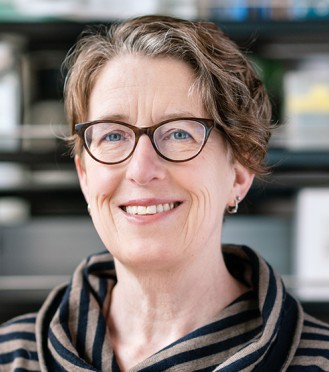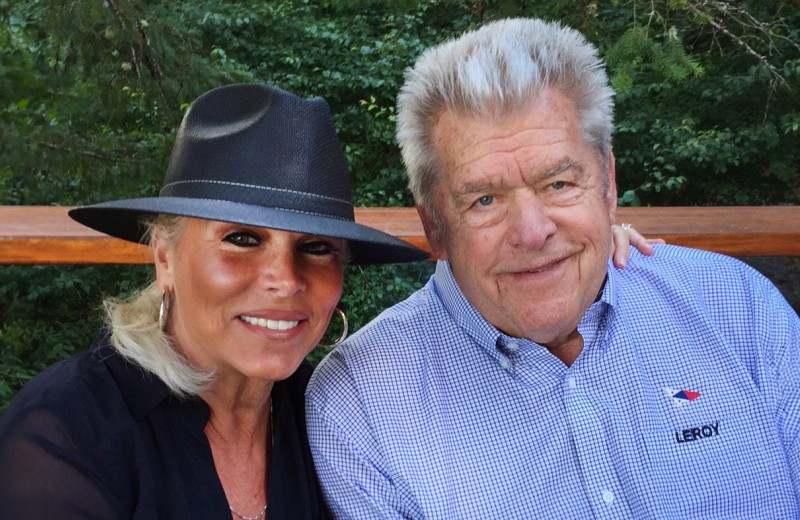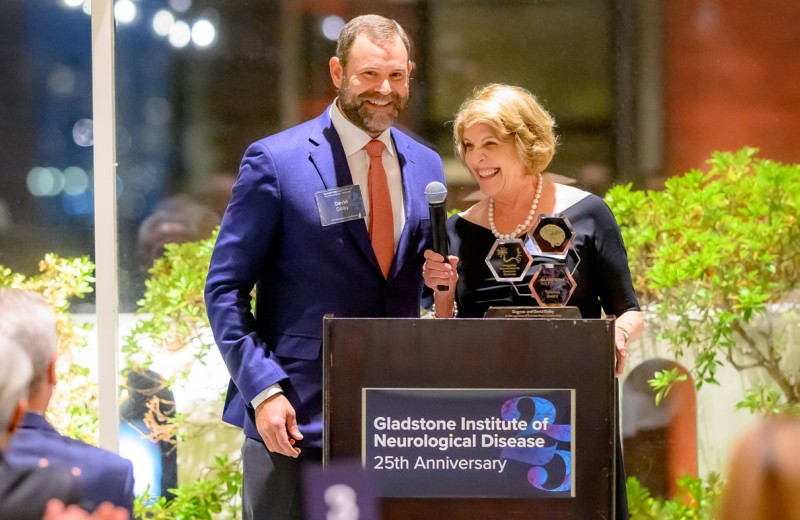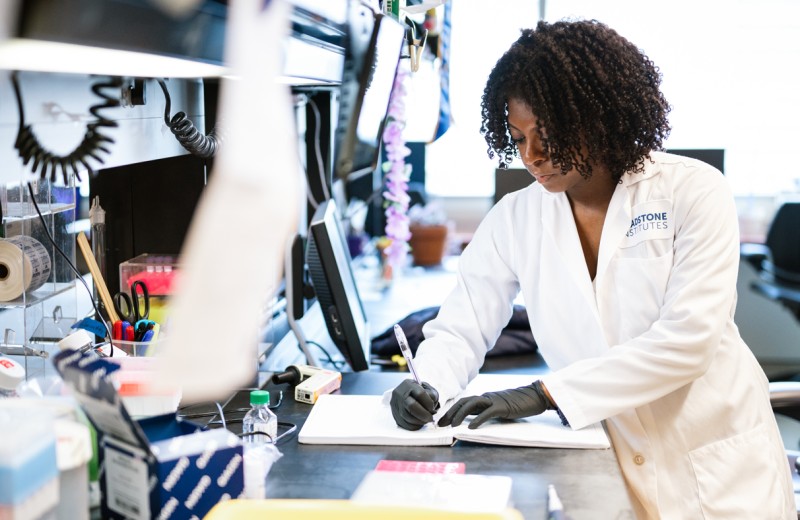Gladstone NOW: The Campaign Join Us on the Journey✕
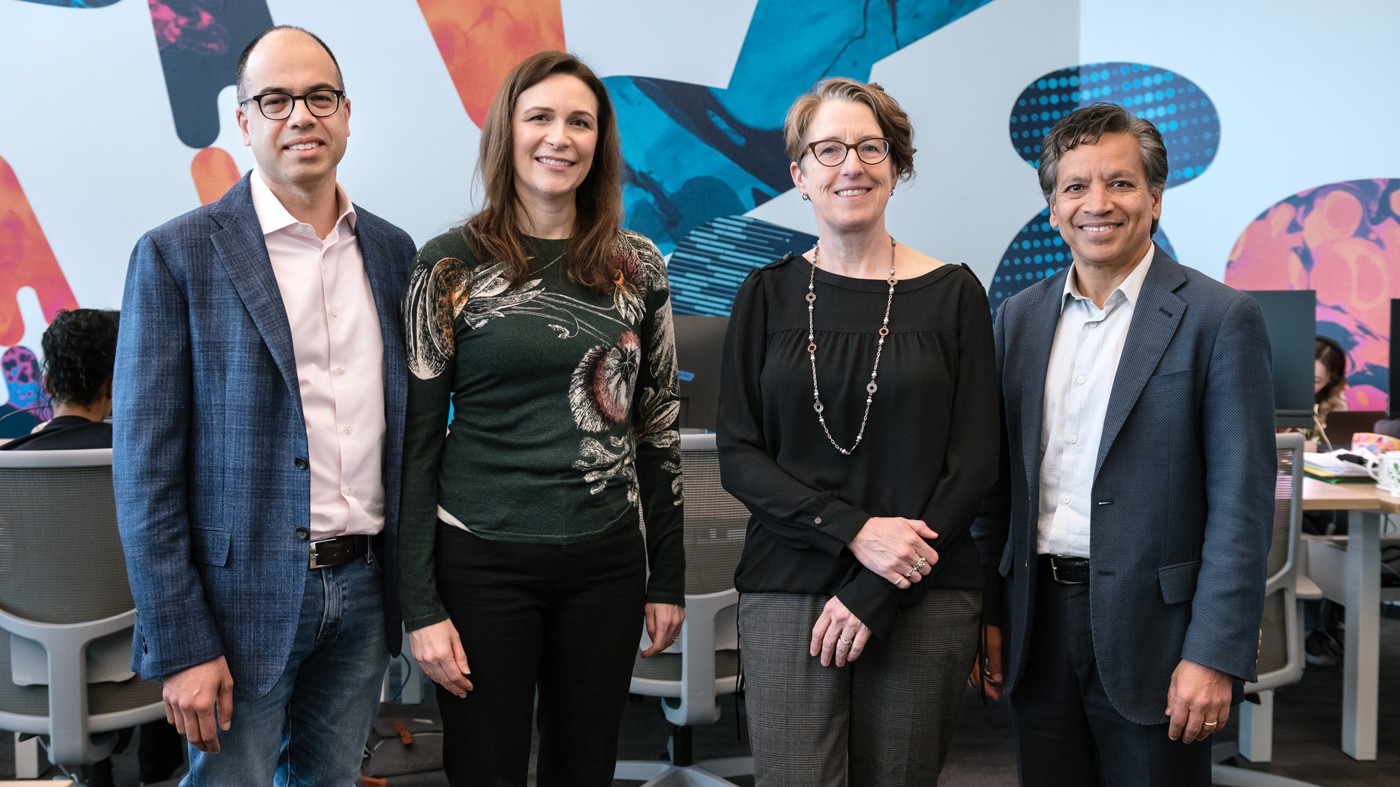
Sanjit and Hope Biswas’s (left, second from left) gift will establish the Biswas Center for Transformative Computational Cancer Biology at Gladstone Institutes. Pictured with Gladstone President Deepak Srivastava, MD, (right) and Katie Pollard (second from right).
Hope and Sanjit Biswas are like many couples in the Bay Area: high-achieving professionals, each with deep knowledge of science and technology, and a shared commitment to making the world a better place.
Sanjit Biswas has degrees in computer science and electrical engineering. He started a company at the end of his graduate training in Boston, which brought him back to Silicon Valley. Since then, he’s been a successful technology entrepreneur, driven by his background in data and computer science.
Hope Biswas, PhD is an infectious disease epidemiologist whose work has included the study of dengue virus infection in Nicaraguan children. She credits her career path to her upbringing in Atlanta, Georgia, close to CDC headquarters, and remains committed to unraveling the many mysteries related to improving human health at scale.
The Biswases’ combined expertise drove them to search for scalable solutions to looming challenges in science and medicine through their recently-formed family foundation. One such solution, at Gladstone Institutes, presented itself in their own backyard.
Giving, with an Eye to Scalable Solutions
Knowing they wanted to make an impact on human health over a multi-decade timeframe, Hope and Sanjit began by looking at the anticipated global burden of disease over the next 20 years. In this span, the majority of diseases projected to affect humanity are noncommunicable, with cancer and heart disease being the most prevalent.
At the same time, the convergence of high-throughput experimentation and disease modeling through computation and artificial intelligence (AI) is poised to unlock new discoveries in biomedicine at a pace that was not possible before. It’s this nexus of opportunity that has attracted their foundation’s giving. “You see these really incredible trends that enable computational biology,” says Sanjit. “I think that might be the why now, or the tipping point, of this kind of breakthrough work.”
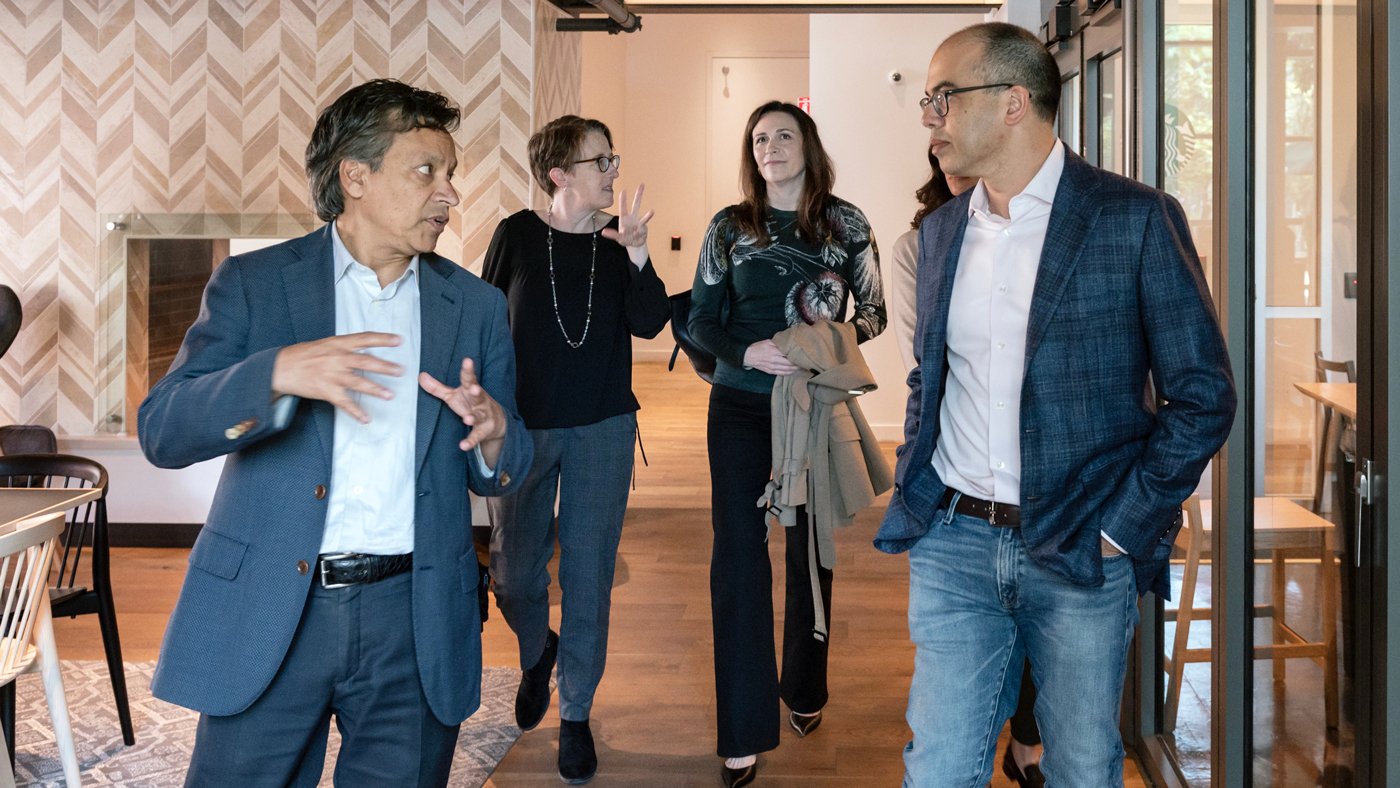
Sanjit Biswas (right) is inspired by the current trends in computational biology. He is pictured here on a tour of the Gladstone Institute of Data Science and Biotechnology with Gladstone President Deepak Srivastava (left) and others.
An Analytical Approach
Sanjit refers to his and his wife’s giving strategy as the “science nerd’s approach to philanthropy.” As they looked for ways to make a difference, the Biswases sought guidance from experts and dove into the scientific literature on their own. They worked to understand the landscape of computational biology—how it’s evolved over the last 20 years, how it’s been influenced by advances in sequencing technologies, and how the power of AI models are priming the field to enter a new era.
The Biswas Family Foundation invited a few dozen leading researchers from across the United States to a summit where they could meet the scientists in person and learn about their ideas. Among those invited was Katie Pollard, PhD, director of the Gladstone Institute of Data Science and Biotechnology. Pollard has been a pioneer of computational biology for the past two decades.
Ultimately, a combination of mind and heart guided the Biswases’ giving decisions. “In the end, it is a very personal kind of journey,” Hope recalls of her and Sanjit’s experience. “We asked ourselves, where do we want to contribute and where do we want to focus? What do we really resonate with or get excited about?”
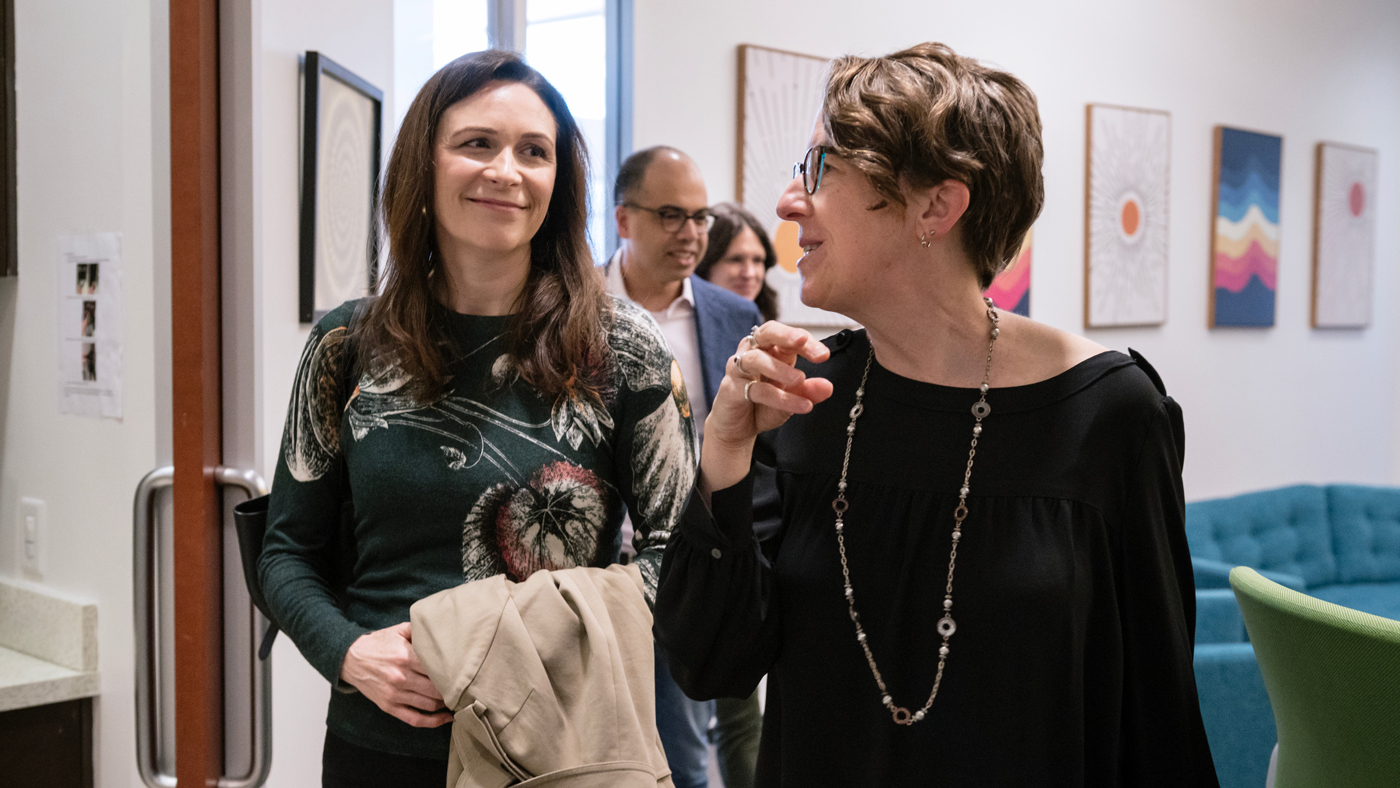
Hope Biswas (left) is excited about the potential of computational biology to be applied to many different areas in health and medicine. Here, she tours the Gladstone Institute of Data Science and Biotechnology with Gladstone’s Katie Pollard (right) and others.
They decided the best approach was to roll up their sleeves and dive in, selecting the teams that exhibited both talent and inspiration. They anticipate learning alongside the researchers as they go. One of the teams chosen by the Biswas Family Foundation will be led by Pollard. The Gladstone team’s co-investigators include:
- Alex Marson, MD, PhD
- Barbara Engelhardt, PhD
- Catherine Tcheandjieu, DVM, PhD
- Christina Theodoris, MD, PhD
- Karin Pelka, PhD
- Ryan Corces, PhD
- Seth Shipman, PhD
- Vijay Ramani, PhD
The Biswas Family Foundation gift has established the Biswas Center for Transformative Computational Cancer Biology at Gladstone Institutes, advancing Gladstone's contributions to the fields of cancer immunotherapy and genetics using AI. The research team is creating computer models trained on rich existing datasets in skin and colorectal cancers, with the expectation that these models will be expanded to dozens of other cancers over time.
“We know there are genetic drivers of cancer and we know we can edit the genome or reprogram the immune system to treat and even eradicate some cancers,” says Pollard. “But for many patients, we simply don’t know which precise cellular mechanisms to target. Support from the Biswas Family Foundation is empowering us to begin solving this prioritization problem via experiments run on the computer.” Pollard anticipates that the project will ultimately fuel a global acceleration of therapeutic discovery across numerous cancers.
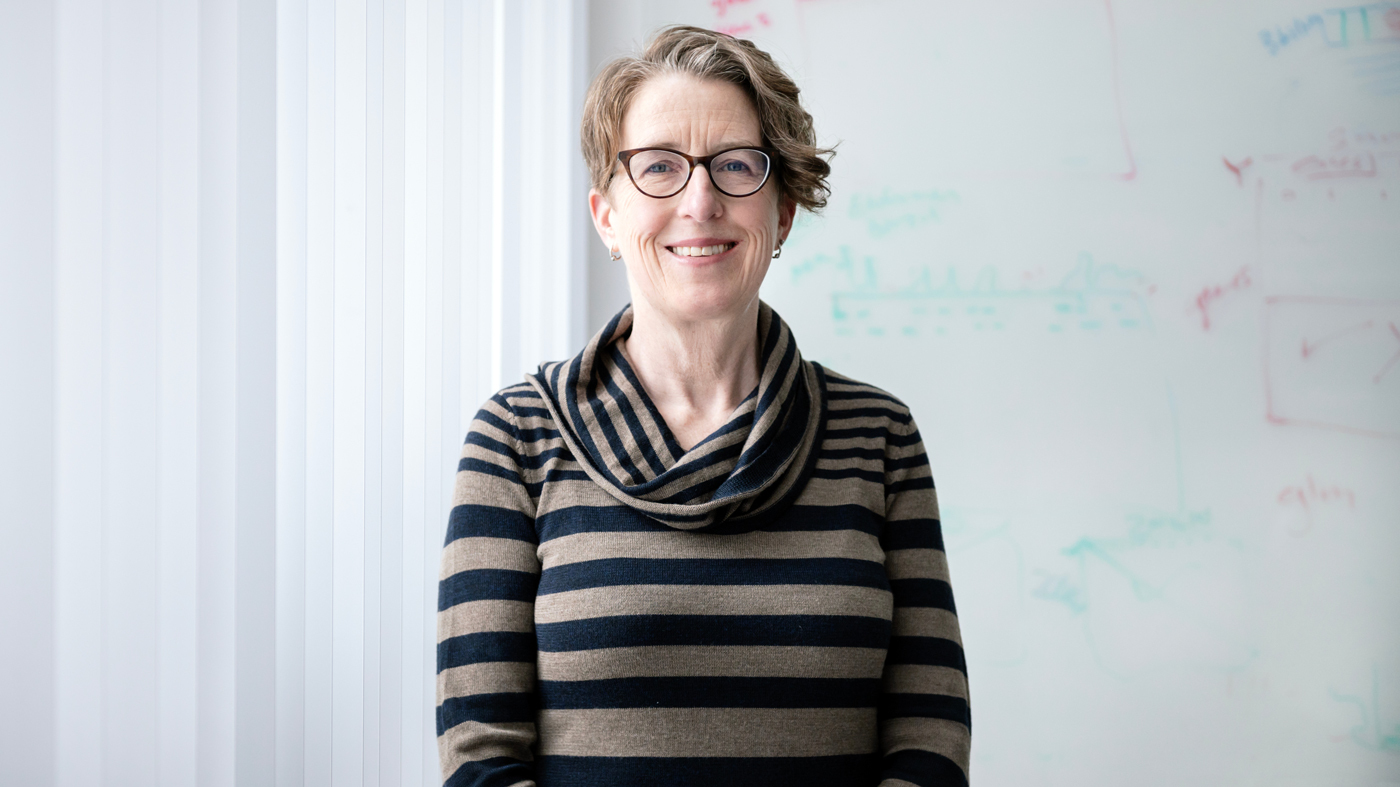
Katie Pollard is a global pioneer in computational biology.
Confidence in the Gladstone Team
It turns out that Sanjit’s current company is located across the street from Gladstone. It’s not lost on Gladstone Senior Investigator Alex Marson that the Biswases’ search led them, essentially, to their own backyard.
“Gladstone is a hub that draws on the best of scientific possibilities here in the Bay Area. It’s a place that breaks down silos,” says Marson, who is also the director of the Gladstone-UCSF Institute of Genomic Immunology. “We have strong collaborations with UC Berkeley, UC San Francisco, and Stanford. Gladstone truly is a magnet that is bringing together people with the tools and the biological questions so that we can solve problems and move closer to disease cures.”
What attracted the Biswas Family Foundation to Gladstone’s proposal was its layering of expertise with its depth of data and leading-edge machine learning approaches.
"They had some amazing ideas that are light years ahead of what we even thought were possible."
During the search and selection process, Hope and Sanjit had ample opportunities to meet with the project’s investigators, including Pollard and Marson. Sanjit recalls being impressed not only by the caliber of the team’s science, but also by their creativity and vision.
“I think they had some amazing ideas that are light years ahead of what we even thought were possible,” he says. “The computational approach seemed really novel and only possible today with vast amounts of data with AI, and then the experimental approaches to close the loop. That really seems like science fiction to us.”
He also recalls being impressed by the team’s ability to speak fluently about computer science.
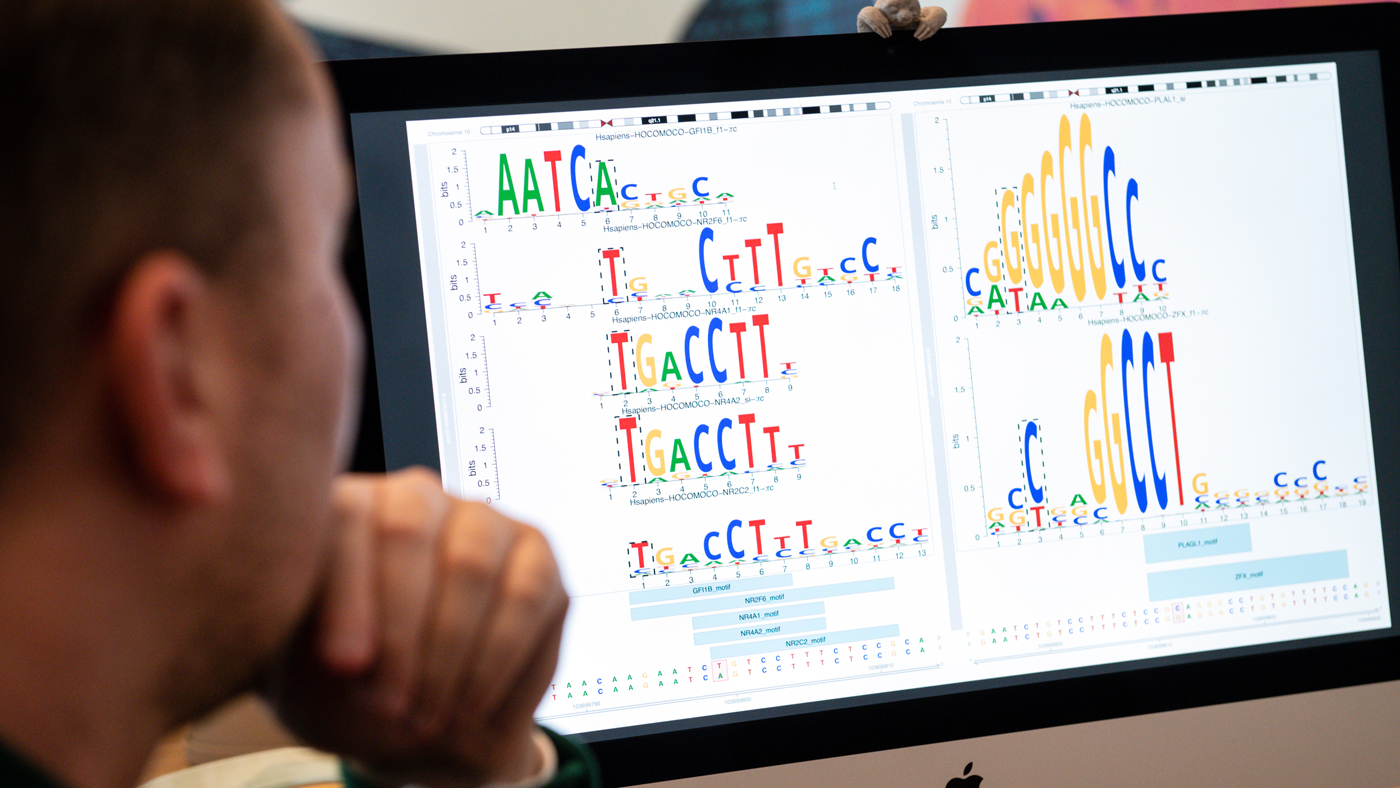
The Biswas Center for Transformative Computational Cancer Biology at Gladstone Institutes is helping fuel a global acceleration of therapeutic discovery.
Hope sees parallels between the broad views taken in public health and the ability of computational biology to study the molecular underpinnings of diseases at scale.
“What excites me about computational biology is it can be applied to many different areas,” she says. “We’re starting off with cancer today, but this project has the potential to advance medicine in many areas and could potentially scale and be cost effective from a global health perspective. I think it has a lot of great potential.”
One unique aspect of Pollard’s proposal that particularly impressed the Biswases was its intentional positioning of computation upstream, rather than downstream, of experimentation in the lab. By winnowing the pool of therapeutic targets through computer modeling first and then rigorously testing them at scale using robotics and automation, the Gladstone team expects to more quickly identify therapeutically viable, novel targets.
Hope and Sanjit were drawn to the Gladstone team’s proposal because it made use of existing, powerful technologies with a view toward making the greatest potential impact.
“We were kind of thinking about this on a multi-decade timeframe and felt like we're at the beginning of an arc in terms of computational biology that is enabled by massive amounts of data,” says Sanjit. “We asked ourselves, where could this project go? And it could help improve the lives of millions of people. And that's really exciting.”
Featured Experts
Embracing Change: Darlene Hines Shares Her Journey of Growth, Resilience, and Giving Back
Embracing Change: Darlene Hines Shares Her Journey of Growth, Resilience, and Giving Back
Longtime Gladstone supporter Darlene Hines reflects on her journey of learning, growth, and giving after her husband’s passing
Donor StoriesThe Risk and the Reward
The Risk and the Reward
How the Dolby family works to improve outcomes for people with Alzheimer’s disease
Donor Stories Alzheimer’s DiseaseIncreasing Diversity in Postdoctoral Research
Increasing Diversity in Postdoctoral Research
Gladstone takes action to address lack of diversity in the STEM workforce through the Embark Program
Postdoctoral and Graduate Student Education and Research Development Affairs Donor Stories Graduate Students and Postdocs Diversity

